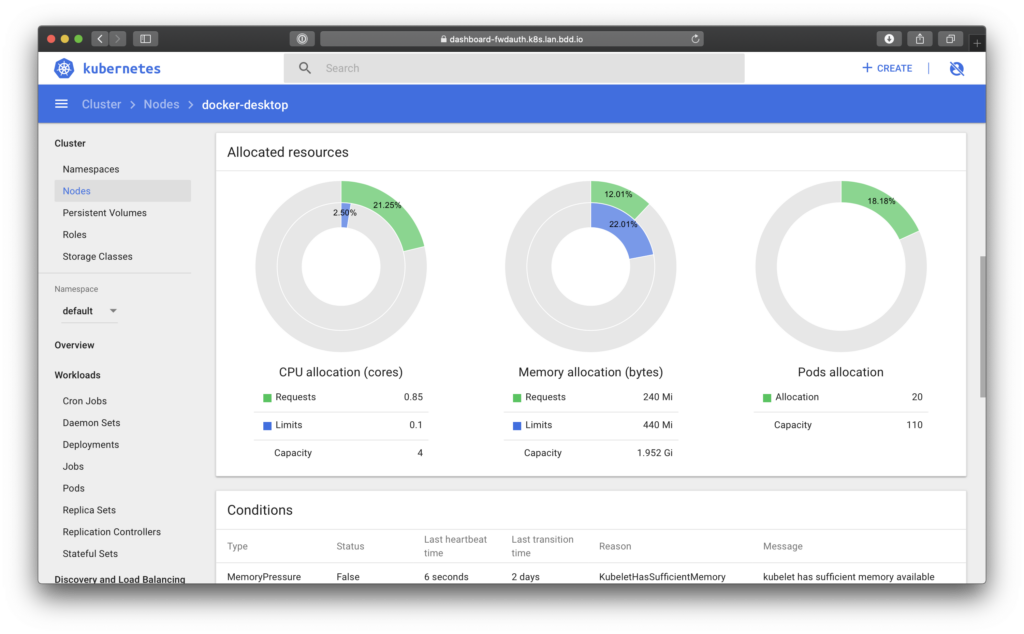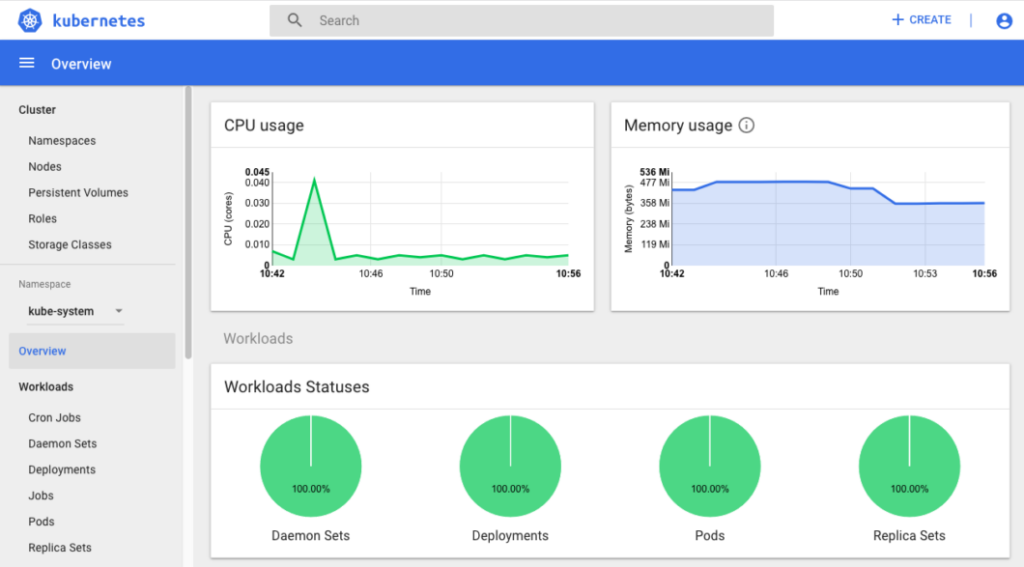With decades of experience in software tech, I'm here to provide an in-depth review of the Kubernetes open-source container orchestration platform. I'll cover everything from its architecture and features to its performance and scalability. By the end, you'll have all the information you need to decide if Kubernetes is the right fit for your needs.

Kubernetes Container Orchestration Platform Overview
Kubernetes orchestrates and manages containerized applications across a cluster of machines. Target users include DevOps teams, system administrators, and developers. The tool offers automated deployment, scaling, and management of containerized applications. It addresses key pain points like managing microservices, handling varying workloads, and automating manual processes. Its best features include high scalability, robust automation, and a comprehensive API.
Pros
- Scalability: Kubernetes handles a large number of nodes and containers, making it easier to manage complex, large-scale applications.
- Automation: Built-in automation of tasks like load balancing, service discovery, and autoscaling saves time and reduces human error.
- Extensibility: With a broad range of plugins and integrations, Kubernetes offers great flexibility for a wide array of use cases.
Cons
- Complexity: Kubernetes has a steep learning curve, particularly when compared to simpler container orchestration tools.
- Resource Intensive: Demands substantial system resources, making it less suitable for smaller setups.
- Configuration: Requires meticulous YAML file configurations that can lead to errors if not done correctly.
Expert Opinion
When it comes to container orchestration platforms, Kubernetes stands out for its feature richness and scalability. Although it excels in automating complex workloads and is highly extensible with a plethora of plugins, its steep learning curve and resource demands can be a challenge. In judging Kubernetes against other open-source options like Docker Swarm or OpenShift, it clearly outperforms in scalability and extensibility but underperforms in ease of use and onboarding. It best suits larger enterprises with complex microservices architectures and DevOps teams that have the bandwidth to manage it.
Kubernetes: The Bottom Line
What sets Kubernetes apart is its highly robust and scalable architecture. Its ability to automate complex workloads across nodes makes it an industry standard for container orchestration. Key features like autoscaling, comprehensive API functionality, and extensible architecture with a variety of plugins make it uniquely capable in the realm of container management.
Kubernetes Deep Dive
In this section, I'll delve into the nitty-gritty details of Kubernetes, providing insights into its features, functionalities, integrations, and more. With my decades of experience in software tech, I aim to offer a well-rounded view of this open-source container orchestration platform.
Product Specifications
- Container Orchestration - Yes
- Load Balancing - Yes
- Service Discovery - Yes
- Auto-Scaling - Yes
- Rollback and Rollout Automation - Yes
- CLI Support - Yes
- API Extensibility - Yes
- Logging and Monitoring - Yes
- Multi-Cloud Support - Yes
- IP Address Management - Yes
- DNS-based Service Discovery - Yes
- Self-Healing Mechanisms - Yes
- Storage Orchestration - Yes
- Batch Execution - Yes
- Horizontal and Vertical Scaling - Yes
- Namespace Isolation - Yes
- Resource Monitoring - Yes
- Custom Resource Definitions - Yes
- Security Policies - Yes
- Node Management - Yes
- Traffic Routing - Yes
- Third-Party Plugins - Yes
- Secret and Configuration Management - Yes
- Automated Rollouts and Rollbacks - Yes
- Microservices Support - Yes
Feature Overview
- Container Orchestration: Kubernetes excels in orchestrating multi-container applications across clusters, handling tasks like deployment and management.
- Load Balancing: It evenly distributes incoming application traffic across multiple instances for optimal resource utilization.
- Service Discovery: Kubernetes automatically registers and deregisters services, making it easier for applications to find each other.
- Auto-Scaling: Depending on the CPU or other custom metrics, Kubernetes scales applications in or out automatically.
- API Extensibility: The Kubernetes API is robust, allowing for a variety of custom resources and configurations.
- Multi-Cloud Support: Kubernetes works across AWS, Google Cloud, and Azure, providing flexibility in cloud environments.
- Self-Healing Mechanisms: If a process fails, Kubernetes automatically replaces the container, ensuring minimal downtime.
- Storage Orchestration: It dynamically provisions storage from cloud providers and adjusts according to needs.
- Namespace Isolation: Kubernetes allows the division of clusters into namespaces, providing a scope for names and adding an extra layer of security.
- Resource Monitoring: Detailed metrics for nodes and containers are available, aiding in debugging and optimization.
Standout Functionality

- Self-Healing Mechanisms: While other platforms might require manual intervention, Kubernetes replaces failed nodes automatically.
- Namespace Isolation: This adds a layer of security granularity that many competitors do not offer.
- API Extensibility: Kubernetes API allows a breadth of custom resources that exceed the native capabilities of most similar platforms.
Integrations
- Native AWS Integrations: Kubernetes can integrate with AWS services like EKS and RDS for database and container management.
- Google Cloud Services: Kubernetes was initially developed by Google, so it integrates well with GCP and its range of services.
- API Features: The Kubernetes API is comprehensive, allowing you to integrate a wide range of third-party tools.
- Add-ons: Helm for package management, Prometheus for monitoring, and Istio for service mesh are common add-ons that extend capabilities.
Kubernetes Pricing
Pricing upon request
Ease of Use
Kubernetes has a steep learning curve, especially for those unfamiliar with container orchestration. The initial onboarding can be complex, given its feature-rich environment. CLI tools like Kubectl are powerful but demand a good grasp of Kubernetes' numerous functionalities. YAML file configurations, while powerful, can be a common source of errors. Once mastered, navigation becomes more intuitive, but reaching that point requires a substantial time investment.
The level of customer support varies based on the Kubernetes service provider you opt for—be it Google's GKE, Amazon's EKS, or Microsoft's Azure Kubernetes Service. Generally, the community support is strong; the Kubernetes GitHub repository and online forums like Stack Overflow are quite active.
Major cloud providers also offer enterprise-level support packages, complete with 24/7 access to experts. However, expect to pay a premium for that level of support. Documentation is extensive but can be overwhelming for a beginner. Live chat support is generally not available unless you opt for a commercial distribution or a managed service.
Kubernetes Use Case
Who Would Be A Good Fit For Kubernetes?
Kubernetes shines in environments where scalability, high availability, and robust orchestration of containerized applications are essential. Enterprises and startups alike in the tech, e-commerce, and finance sectors find it useful. DevOps teams benefit significantly from its wide range of functionalities. It's especially powerful for teams with cloud-native applications and microservices architecture. Companies running on multi-cloud setups or moving from on-premise to the cloud often choose Kubernetes for its versatility and wide range of supported environments.
Who Would Be A Bad Fit For Kubernetes?
Kubernetes might not be the right fit for small teams or individual developers with simple, monolithic applications. Organizations without the in-house expertise to manage a complex Kubernetes setup might find it a steep hill to climb. Companies in highly-regulated industries like healthcare might also find the dynamic nature of container orchestration to be a challenge when it comes to compliance.
Kubernetes FAQs
What is Kubernetes?
Kubernetes is an open-source platform for automating deployment, scaling, and operations of containerized applications.
How Does Kubernetes Work?
It groups containers that make up an application into logical units for easy management and discovery.
Is Kubernetes Only for Cloud-Native Applications?
No, Kubernetes can manage both cloud-native microservices and traditional monolithic applications.
How Does Kubernetes Compare to Docker?
While Docker is used for creating containerized applications, Kubernetes is used for managing and orchestrating these containers.
What is Kubectl?
Kubectl is a command-line interface for running commands against Kubernetes clusters.
Does Kubernetes Offer Auto-Scaling?
Yes, Kubernetes does offer auto-scaling based on CPU usage and other custom metrics.
Is Kubernetes Suitable for Small Businesses?
It depends on the complexity and scale of your applications. For smaller, less complex workloads, Kubernetes might be overkill.
Is Kubernetes Secure?
Kubernetes offers several built-in security features, but the overall security depends on various factors including configuration, network policies, and the user's adherence to best practices.
Alternatives to Kubernetes
- Docker Swarm: For those familiar with Docker and looking for simpler orchestration.
- Apache Mesos: Ideal for big data applications and large-scale, data-intensive environments.
- OpenShift: An enterprise solution that is great for teams already invested in Red Hat technologies.
Kubernetes Company Overview & History
Kubernetes was originally developed by Google and is now maintained by the Cloud Native Computing Foundation. It's used by companies ranging from startups to Fortune 500 enterprises. Being open-source, it is not owned by a single company.
The project's headquarters is essentially its vibrant community spread across GitHub and various forums. Notable contributors include Kelsey Hightower and Brendan Burns. The mission is to simplify the complexities of application deployment, scaling, and management. It has seen consistent growth since its launch in 2014, with contributions from various organizations and individual contributors.
Final Thoughts
Kubernetes has established itself as a leader in the container orchestration market. With its robust features like load balancing, auto-scaling, and multi-cloud support, it fits nicely in environments that demand scalability and high availability. However, its complexity and the expertise required could be a barrier for smaller teams or less complex applications.
There are many noteworthy Kubernetes resources to explore.
